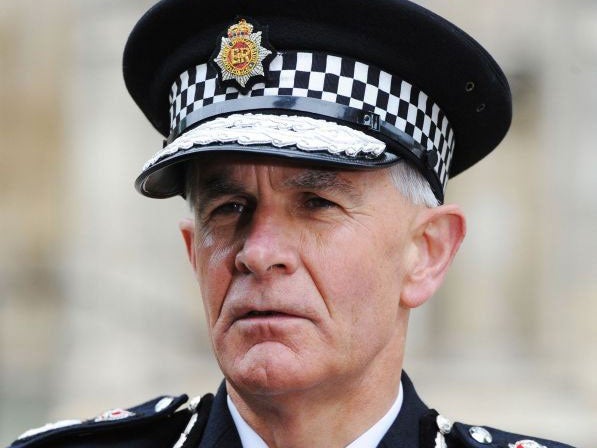Trial against head of Greater Manchester Police accused of fatal shooting collapses
Relatives of the dead man, Anthony Grainger, 36, said they were 'hugely disappointed' at the decision

The trial of a chief constable over the fatal shooting of an unarmed suspect has collapsed after "secret" police evidence was barred from being heard in public.
The case against the head of Greater Manchester Police (GMP) was dropped after the force argued it could not defend itself without evidence considered too sensitive to be heard in open court.
Relatives of the dead man, Anthony Grainger, 36, said they were "hugely disappointed" at the decision not to press ahead with the only criminal case arising from the shooting.
They warned that the dropping of the case against GMP chief constable Peter Fahy could set a precedent which could allow police to keep alleged wrong-doing secret.
Mr Grainger, a father-of-two, was shot dead by a police marksman at close range as he sat in a parked car in the Cheshire village of Culcheth in March 2012.
Mr Grainger – who had previously been jailed for 20 months for handling stolen cars – had been under police surveillance for weeks over suspicions that he and other men were planning to rob a nearby supermarket.
No weapons were found although officers were reportedly warned that Mr Grainger and two friends were likely to fire at police if challenged.
Lawyers for Mr Grainger’s family said that they did not know why prosecutors had abandoned the case, but said the last-minute decision meant they had wasted months in the battle to find out the truth of why Mr Grainger died.
The Crown Prosecution Service (CPS) said the decision came after a judge ruled that certain material had to be disclosed in open court to allow the force to have a fair trial. The CPS decided to drop the case against the force after consulting with “relevant parties”. It declined to confirm if these included the police.
"The worry is that police can come along and say: 'We have secret evidence that we’re not prepared to put before the courts – but we need to rely on that evidence to justify the decisions we made,'" said Jonathan Bridge, the family’s solicitor.
"If that logic is followed, there’s now a defence to police which suggests that they can’t ever face a major trial. In every major operation, there will always be secret evidence."
An inquest examining the circumstances surrounding Mr Grainger’s death was put on hold in 2013 to allow the trial to take place. The inquest is now scheduled to take place in August, but a judge still has not been appointed.
Last night speculation about the nature of the evidence that halted the prosecution centred on the potential use of surveillance techniques, the evidence of informants, or the contents of a pen drive stolen from a local detective’s home, containing the details of hundreds of police informants.
Mr Grainger had been questioned about stealing the memory stick, but cleared of involvement. However, he was soon put under weeks of police surveillance that culminated in his shooting.
In a statement, his family said: "We have waited three years for this trial. During that period the inquest has not been able to progress and we now find that they are no nearer to the truth. We simply want answers."
Although Mr Fahy was the defendant at the trial he did not face personal responsibility for the alleged 26 failures by the 16-strong firearms team.
The CPS had considered murder charges against the unnamed officer who fired the fatal shot, but said in January he would not face prosecution for murder.
Mr Grainger was the first man to die in a police shooting since the killing of Mark Duggan in 2011 sparked riots across London that spread nationwide.
